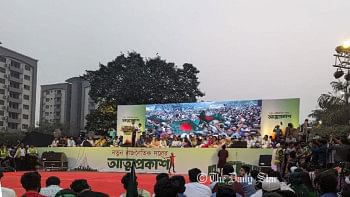"Bangla, not Bengali"
A letter under the above heading was published in The Daily Star on 5 Jan 09. The letter was highly rated and was very popular with the readers.
I would like to point out that in Muslim era the rulers (such as Hussain Shah etc who also were the initial patrons of development of Bengali language) called the land Bang-Ala or High Bang. Bang was the abbreviation for Bhangadesh or Bangadesh describing a broken up riverine land mass.
The early Portugese map makers in the 16th century termed the area Bengala because of this reason and all over India it was known as Bangala or further abbreviated to Bangal or Bengal and its people and language Bangali or Bengali. During the British era with the prominence of Hindu writers and academics the land Bang-ala with Arabic connotations was changed to Bangla, but in other parts of India the land was still known as Bangal and its people remained the same as before i.e. Bengali or Bangalee.
The word Bangla for people and language of Bangladesh on the wider sub-continent and hence in the wider world has no historical or etymological basis. As such Bangalee or Bengali would convey a truer rendition in other languages of the history of the people and language of Bangladesh.
It should be noted that it was the Muslim rulers who introduced such phraseology without any attachment of derogation or shame in the use of such appellation, and not the English colonial rulers.

 For all latest news, follow The Daily Star's Google News channel.
For all latest news, follow The Daily Star's Google News channel. 



Comments